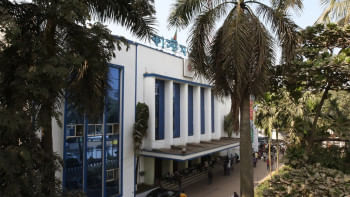Who decides on whose identity?
Afew days back, under the signature of a deputy secretary of the Ministry of Chittagong Hill Tracts Affairs (MoCHTA) a letter was issued regarding the use of the terms "tribal" (upojati) and "indigenous" (adivasi). The deputy commissioners (DC), superintendents of police (SP) and upazila nirbahi officers (UNO) in three Hill Districts were requested to undertake measures for keeping law and order and harmony among all communities in the hill region.
The letter also expresses some concerns over the use of the term adivasi instead of tribal by the indigenous leaders, intellectuals and media people. First, by identifying themselves as adivasi, some indigenous people are carrying out propaganda against the Bengali settlers. Second, once they are recognised as adivasi, they will have the right to enjoy all rights guaranteed by United Nations and might create pressure on the government of Bangladesh at international level. Third, recognition as adivasi will pave the way for establishing "autonomy" for indigenous peoples in the future. Thus, recognition might tell upon communal harmony in the hilly region. What is the objective of this letter? Are the concerns or allegations expressed in the letter well-founded?
Raja Devasish Roy, the Chakma Circle Chief, in his inaugural speech during the Headmen's Association's conference in Khagrachari, said that the letter by MoCHTA on the reservation of using adivasi was without merit as the constitution of Bangladesh did not say anything about tribal or adivasi (Prothom Alo, Feb 13).
Upajati or adivasi, who will decide on the question of identity? Why do the civil-military bureaucrats intend to impose an identity on indigenous peoples? They must understand that the term "indigenous" is not new in Bangladesh. Many laws, such as CHT Regulation 1900; income tax laws; the Forest Act 1927; and the State Acquisition and Tenancy (Amendment) Act 2004 uses the terms "indigenous hillmen" or "aboriginal."
The ILO Convention 169, the Convention on Biological Diversity (CBD) and United Nations Declaration on the Rights of Indigenous Peoples (UNDRIP), among others, recognise the indigenous rights at the international level. These conventions have been passed as global standards for protection and promotion of indigenous rights across the world. Bangladesh being a state party to the United Nations cannot ignore this reality. In addition, by its constitutional obligation, Bangladesh is bound to respect international laws and standards (Article 25).
Thus, for Bangladesh to deny the indigenous rights will be tantamount to living in a fools' paradise in this globalised age. The government might instead undertake measures for constitutional recognition of indigenous peoples, by which it could gain international acclamation.
The last point of the MoCHTA letter is concerned with autonomy, but it did not clarify what it meant by autonomy. However, as a common citizen, I understand autonomy in relation to decentralisation of power from the centre to the periphery. To address this issue we have got the CHT Accord 1997, which could be considered as one of the best models in conflict resolution without third-party involvement.
Despite differences on the question of implementation of the CHT Accord, it is a constructive arrangement between the government and indigenous peoples in CHT. To implement it in letter and spirit, mutual trust and respect must come from both sides -- indigenous and non-indigenous people. However, indigenous peoples expect a liberal and positive attitude from the majority non-indigenous people, including civil-military bureaucrats.
By the way, indigenous people are not for disintegration. From the very beginning they wanted to be recognised by the constitution of country; but the government imposed "Bangali" identity on them through the constitution instead. We have witnessed the fallout of that for more than three decades in CHT.
Finally, we got the CHT Accord; however, the aspiration for constitutional recognition as indigenous peoples has not been fulfilled yet. We indigenous peoples do not want imposed identity. We assert our identity as adivasis, and this is our human right. The state must respect and recognise this right.

 For all latest news, follow The Daily Star's Google News channel.
For all latest news, follow The Daily Star's Google News channel. 



Comments